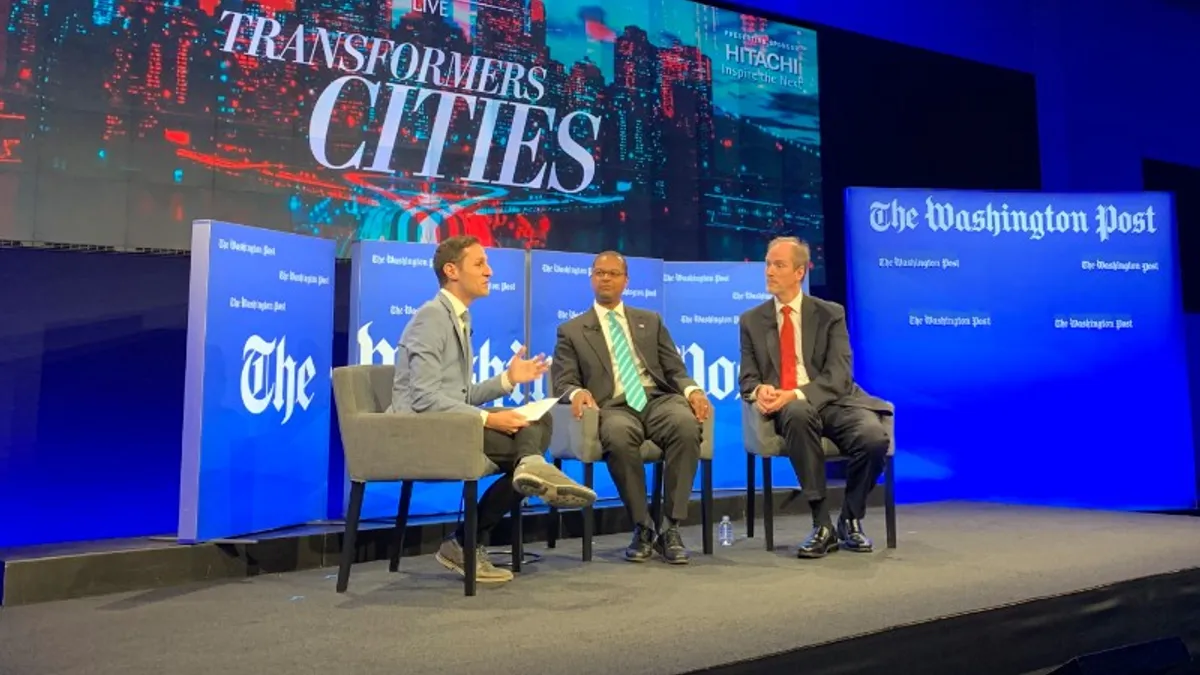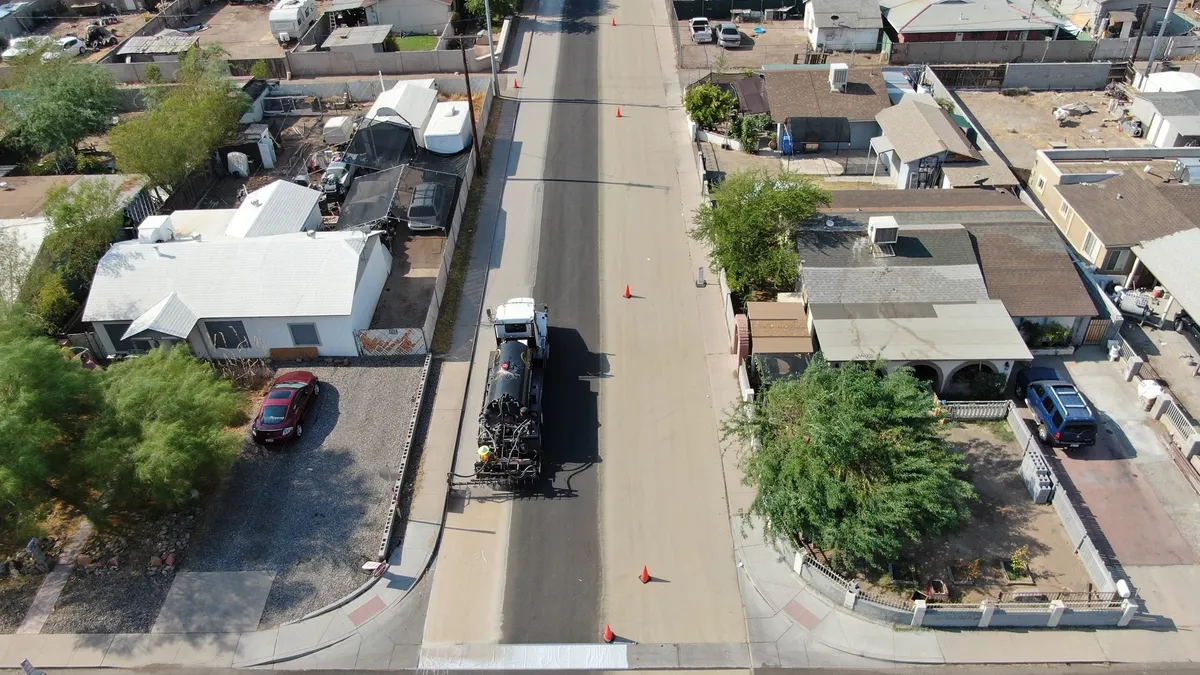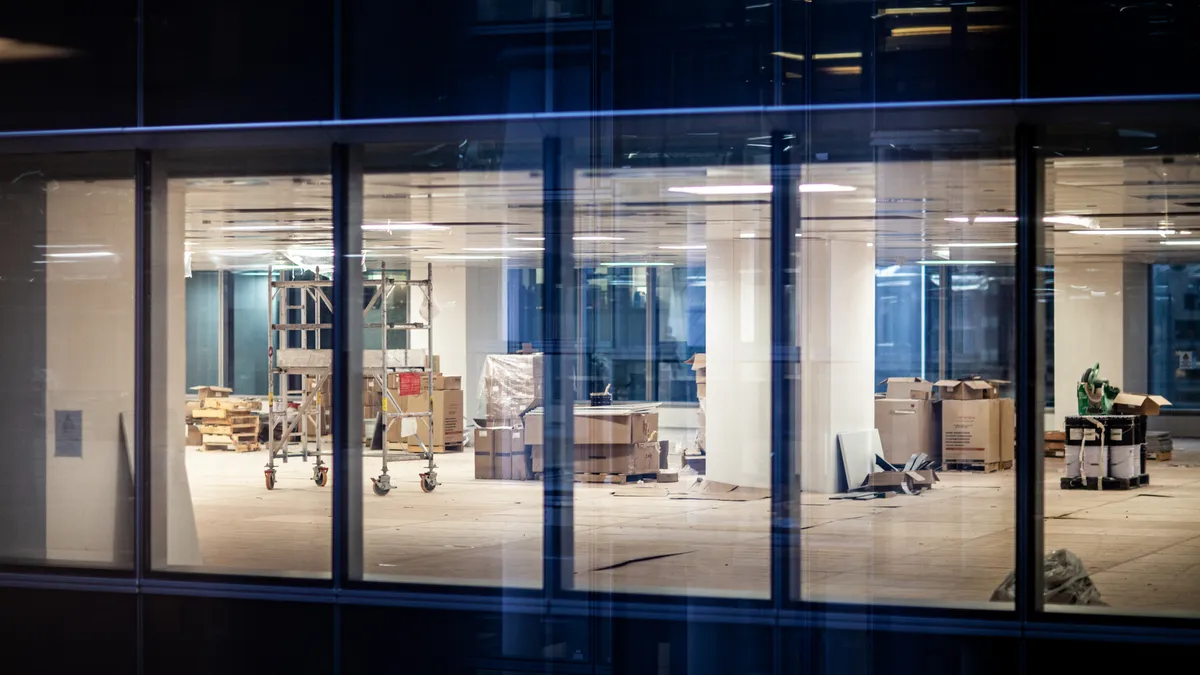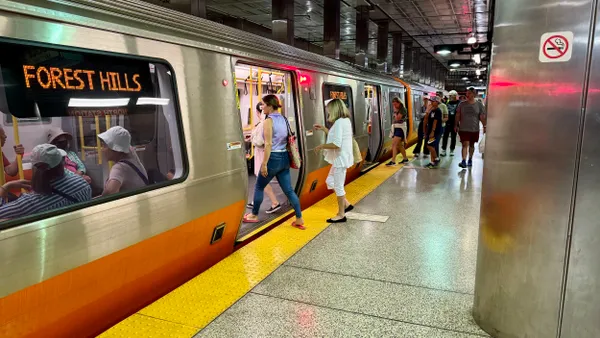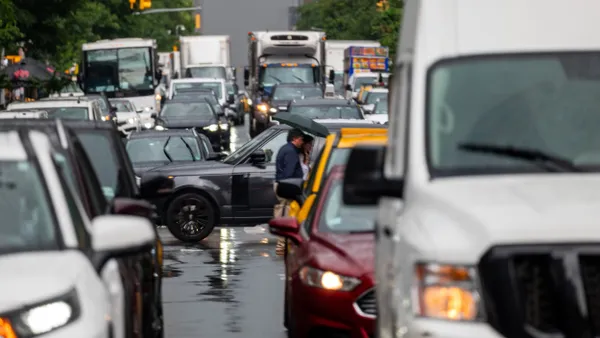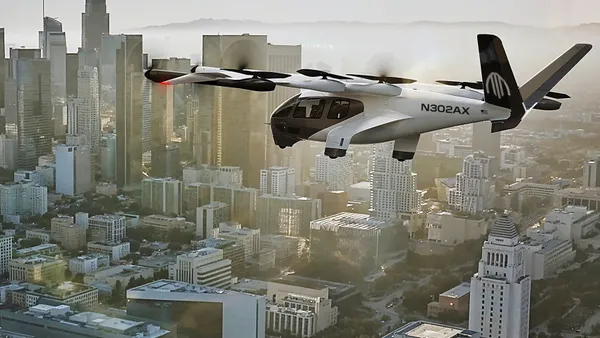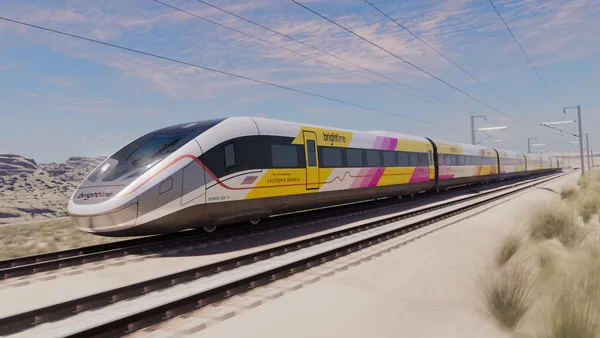Dive Brief:
-
A high-speed rail will soon transform the way people live, work and play in the Northeast region, according to Northeast Maglev's Senior Vice President Ian Rainey. He was joined by urban planners, business leaders and government officials in a discussion on smart cities at "Transformer: Cities," a Washington Post Live event, this week.
-
The company expects to begin construction in two years on a line that would travel from Washington, DC to the Baltimore in 15 minutes, a trip that typically can take 45 minutes or more with existing transportation options.
-
Also during the discussion, Andrew Altman, principal of Fivesquares Development, warned that smart cities can’t afford to lose sight of the "basics." Beyond advanced mobility and technology solutions, smart cities still need to prepare for fundamental needs like housing, land use and transportation, he said.
Dive Insight:
Rainey responded to criticism about the projected $10-12 billion cost of the Washington, DC-BWI high-speed rail line. It's expensive, he acknowledged, but "what you’re paying for is that speed." The ability to travel quickly from each city will transform the way people live, work and spend their leisure time, he said.
Not only will the line overhaul how people live their daily lives, but it could also remove cars from roads. The Washington, DC-BWI line is expected to transport 17 million passengers per year, removing 80% of those passengers from their cars and freeing up congested roadways.
The benefits of freeing up roadways will be felt beyond just the Northeast. A hyperloop is currently being explored between Chicago and Cleveland, promising to transport passengers in about a half hour instead of the typical six hours.
Virgin Hyperloop One is also working on projects in Ohio, Missouri, Nevada and Texas, saying it could help regional cities connect just as easily as subways connect local city neighborhoods."
Other potential innovations around transportation and technologies like 5G in cities will fundamentally change the way people lead their daily lives, the experts said. But with that change, comes new costs and potential downsides.
The race for 5G technology will have winners and losers, according to Federal Communications Commission (FCC) Commissioner Geoffrey Starks. The "winner" of the international 5G race will set the standards for how it's used, he said, supporting President’s Trump's stance that the "race to 5G is a race America must win."
Equitable access to 5G is also a concern for Starks. Millions of Americans still don’t have broadband access, he said. The proposed Sprint-T-Mobile deal is said to help with that problem by cutting costs and making 5G more affordable, according to Starks. But the cost benefits for consumers are still up for debate.
Regardless of the outcome, Starks said he still worries about a world where "those with much are getting even more and then other folks get left behind."
CORRECTION: This story has been updated to reflect that Ian Rainey responded to criticism about the high-speed rail line.



